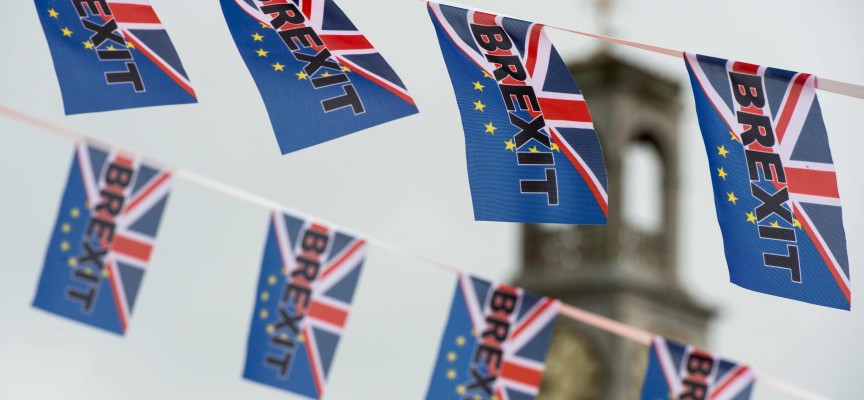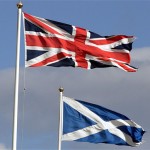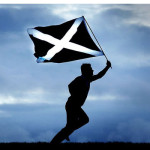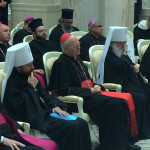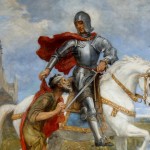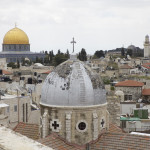Msgr. William Kenney, delegate of the Bishops’ Conference of England and Wales, explained how, after the result of the referendum on Brexit there have been “very few explanations about what will happen and the consequences that this vote will cause”. He said he was convinced that the Church will have a very important role in the coming discussions. “When the UK negotiates the different trade agreements required, the Church will have to be the voice of the marginalized and disadvantaged”.
Msgr. Nicholas Hudson, the auxiliary bishop of Westminster, said he was particularly concerned about the rise in hate crimes against foreigners in the UK as a result of the referendum on Brexit. “As a Church, we must firmly condemn these crimes”, he insisted.
Msgr. Hugh Gilbert, of the Scottish Bishops’ Conference, shared his analysis of the reasons of the vote in favour of Brexit and the reasons why Scotland has largely opted for remaining. The reopening of the debate on Scottish independence does not constitute, in his view, the most significant result of the referendum. According to him, “there is rather quite a widespread uncertainty”.
“Young people in particular feel deprived of their rights”, said Msgr. Natale Treanor, Bishop of Down & Connor (Belfast) and delegate of the Bishops’ Conference of Ireland. He described a number of possible impacts both on Northern Ireland and on the Republic of Ireland. Among the topics of concern, he drew particular attention to the possible impact of Brexit on the peace process and political institutions which had been launched on the basis of the “Good Friday Agreement”; the question of a rigid or open boundary between Northern Ireland and the Republic of Ireland, and in particular the impact on Ireland as a whole. “Uncertainty reigns in Ireland”, he concluded.
Mons. William Kenney, delegato della Conferenza episcopale di Inghilterra e Galles, ha spiegato come, da dopo il risultato del referendum sul Brexit ci siano stati “davvero pochi chiarimenti su ciò che accadrà e le conseguenze che questo voto causerà”. Si è detto convinto che la Chiesa avrà un ruolo molto importante nei prossimi dibattiti. “Quando il Regno Unito negozierà i diversi necessari accordi commerciali la Chiesa dovrà essere la voce delle persone emarginate e svantaggiate”.
Mons. Nicholas Hudson, il vescovo ausiliare di Westminster, si è detto particolarmente preoccupato per l’aumento dei crimini d’odio contro gli stranieri nel Regno Unito a seguito del referendum sulla Brexit. “Come Chiesa, dobbiamo fermamente condannare questi crimini”, ha insistito.
Mons. Hugh Gilbert, della Conferenza episcopale scozzese, ha condiviso la sua analisi delle motivazioni del voto per la Brexit e le ragioni per le quali la Scozia ha in gran parte optato per il rimanere. La riapertura del dibattito sull’indipendenza scozzese non costituisce secondo lui la conseguenza più significativa del referendum. Secondo lui, “c’è piuttosto una incertezza molto diffusa”.
“I giovani in particolare si sentono privati dei loro diritti”, ha dichiarato Mons. Natale Treanor, vescovo di Down & Connor (Belfast) e delegato della Conferenza Episcopale d’Irlanda. Egli ha descritto una serie di possibili impatti sia sull’Irlanda del Nord che sulla Repubblica d’Irlanda. Tra i temi di preoccupazione, ha attirato particolarmente l’attenzione sul possibile impatto della Brexit sul processo di pace e sulle istituzioni politiche che erano state avviate a seguito dell’ “accordo del Venerdì Santo”; la questione di un confine rigido o aperto tra Irlanda del Nord e Repubblica d’Irlanda, e in particolare l’impatto sull’Irlanda nel suo complesso. “L’incertezza regna in Irlanda”, ha concluso.
Johanna Touzel
Latest posts by Johanna Touzel (see all)
- Brexit: British and Irish Bishops - 2 novembre 2016
- To climb down from our European pedestal - 8 giugno 2016
- European Commission: the best team? - 3 settembre 2014

